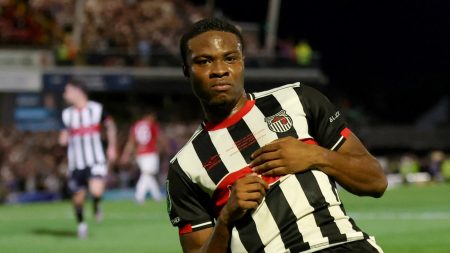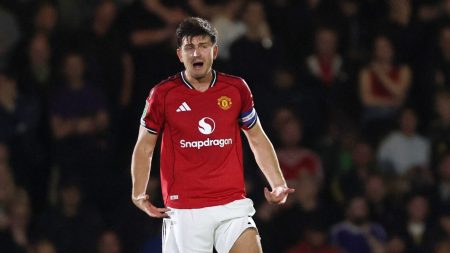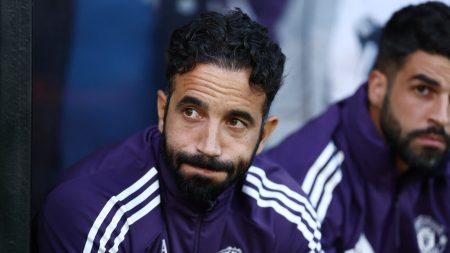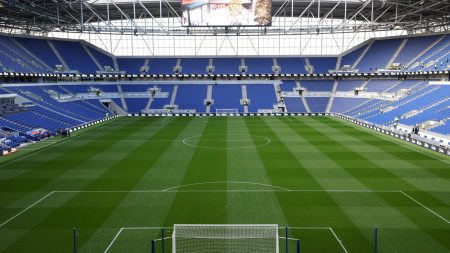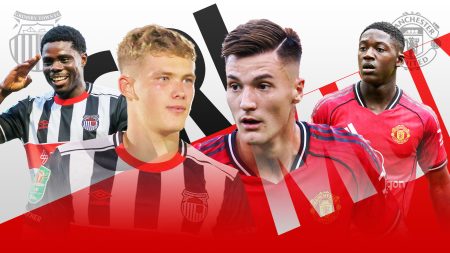Dan Ashworth’s brief and tumultuous tenure as Manchester United’s sporting director has come to an abrupt end, a mere five months after he joined the club from Newcastle United. His departure, announced as a mutual agreement following a crisis meeting with CEO Omar Berrada, followed a humiliating 3-2 home defeat to Nottingham Forest, a result that exposed deep-seated issues within the club. Ashworth’s exit was shrouded in an air of unceremonious dismissal, with reports suggesting he was escorted out of Old Trafford via a less-traveled exit, accompanied by a security detail and a senior club official. This unusual departure fueled speculation of a forced exit, with some observers characterizing it as being “frogmarched” out of the club. His grim demeanor in the press room prior to the match hinted at the impending announcement, signaling a swift and decisive end to his brief spell at the helm of United’s sporting operations.
Ashworth’s arrival at Manchester United was met with considerable fanfare, with the club paying a significant £3 million compensation fee to secure his services from Newcastle. He was touted as a key figure in the club’s rebuilding process, bringing a wealth of experience and a proven track record in football administration. However, his short stint was marked by questionable decisions, particularly in the summer transfer window. A £200 million outlay on players like Leny Yoro, Manuel Ugarte, Matthijs De Ligt, Joshua Zirkzee, and Noussair Mazraoui raised eyebrows, with some questioning the strategic rationale behind these acquisitions. Despite publicly expressing satisfaction with the squad earlier in the season, the subsequent on-field struggles and Ten Hag’s eventual dismissal exposed flaws in the recruitment strategy, leading to a blame game within the boardroom.
The decision to award Erik ten Hag a new contract, only to sack him just 14 games later, further underscores the instability and lack of clear direction within Manchester United’s leadership. Ashworth, along with other senior figures, was instrumental in both the contract extension and the subsequent dismissal, highlighting a concerning lack of foresight and consistency in the club’s decision-making process. This erratic approach to management has contributed to the ongoing turmoil at Old Trafford, leaving fans and pundits alike questioning the club’s long-term strategy and ability to compete at the highest level.
The search for Ashworth’s replacement has already begun, with Crystal Palace’s Dougie Freedman emerging as a frontrunner for the position. Freedman, who has been linked with the role previously, is seen as a potential stabilizing force, bringing a pragmatic approach and a deep understanding of the English football landscape. His appointment, however, would be another significant change in a club already grappling with a revolving door of executives and managers. The challenge for Manchester United’s hierarchy will be to ensure that the next appointment provides the stability and long-term vision necessary to navigate the club out of its current predicament.
The rapid turnover in Manchester United’s sporting director role reflects the deeper issues plaguing the club. From questionable transfer dealings to inconsistent managerial appointments, the club appears to be lacking a cohesive and sustainable strategy. The pressure will be immense on the incoming sporting director to rectify these issues and build a squad capable of challenging for major honors. Furthermore, the club needs to establish a clear identity and playing philosophy, fostering a culture of stability and long-term planning rather than reactive and short-sighted decisions.
The departure of Dan Ashworth marks a pivotal moment for Manchester United. It’s an opportunity for the club to reassess its approach, learn from its mistakes, and implement a more strategic vision for the future. The appointment of a new sporting director will be crucial in this process, but it will also require a collective effort from the board, the manager, and the players to restore the club to its former glory. The coming months will be crucial in determining whether Manchester United can finally emerge from this period of instability and reclaim its position as a dominant force in English and European football.







